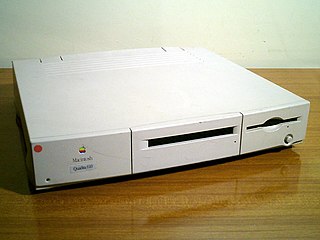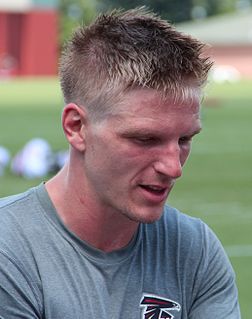
The Personal System/2 or PS/2 is IBM's third generation of personal computers. Released in 1987, it officially replaced the IBM PC, XT, AT, and PC Convertible in IBM's lineup. Many of the PS/2's innovations, such as the 16550 UART, 1440 KB 3.5-inch floppy disk format, Model M Keyboard layout, 72-pin SIMMs, the PS/2 keyboard and mouse ports, and the VGA video standard, went on to become standards in the broader PC market.

A futures exchange or futures market is a central financial exchange where people can trade standardized futures contracts; that is, a contract to buy specific quantities of a commodity or financial instrument at a specified price with delivery set at a specified time in the future. These types of contracts fall into the category of derivatives. The opposite of the futures market is the spots market, where trades will occur immediately after a transaction agreement has been made, rather than at a predetermined time in the future.
Futures instruments are priced according to the movement of the underlying asset. The aforementioned category is named "derivatives" because the value of these instruments are derived from another asset class.
An HTML element is an individual component of an HTML document or web page. HTML is composed of a tree of HTML nodes, such as text nodes. Each node can have HTML attributes specified. Nodes can also have content, including other nodes and text. Many HTML nodes represent semantics, or meaning. For example, the <title> node represents the title of the document.

The DECstation was a brand of computers used by DEC, and refers to three distinct lines of computer systems—the first released in 1978 as a word processing system, and the latter two both released in 1989. These comprised a range of computer workstations based on the MIPS architecture and a range of PC compatibles. The MIPS-based workstations ran Ultrix, a DEC-proprietary version of UNIX, and early releases of OSF/1.

Phillip Martin Simms is a former American football quarterback who spent his entire 15-year professional career playing for the New York Giants of the National Football League (NFL). He is currently a television sportscaster for the CBS network. After playing college football at Morehead State University, Simms was drafted in the first round by the New York Giants of the National Football League (NFL) with the number seven selection overall in the 1979 NFL Draft. Simms was named Most Valuable Player (MVP) of Super Bowl XXI, after he led the Giants to a 39–20 victory over the Denver Broncos and set the record for highest completion percentage in a Super Bowl, completing 22 of 25 passes (88%). He also was named to the Pro Bowl for his performances in the 1985 and 1993 seasons.
William Simms was a British scientific instrument maker.
The organizing model, as the term refers to trade unions, is a broad conception of how those organizations should recruit, operate, and advance the interests of their members, though the specific functions of the model are more detailed and are discussed at length below. It typically involves many full-time organizers, who work by building up confidence and strong networks and leaders within the workforce, and by confrontational campaigns involving large numbers of union members. The organizing model is strongly linked to social movement unionism and community unionism. The organizing model contributes to the discussion of how trade unions can reverse the trend of declining membership, which they are experiencing in most industrial nations, and how they can recapture some of the political power, which the labor movement has lost over the past century.

The Macintosh Quadra 700 is a personal computer designed, manufactured and sold by Apple Computer, Inc. from October 1991 to March 1993. It was introduced alongside the Quadra 900 as the first computers in the Quadra series using Motorola 68040 processor. It is also the first computer from Apple to be housed in a mini-tower form factor, which in 1991 was becoming a popular alternative to standard desktop-on-monitor cases that were common through the 1980s.

Christopher David Simms is a former American football quarterback who played in the National Football League (NFL). He was drafted by the Tampa Bay Buccaneers in the third round of the 2003 NFL Draft. He played college football at Texas.

Daimler Motoren Gesellschaft (DMG) was a German engineering company and later automobile manufacturer, in operation from 1890 until 1926. Founded by Gottlieb Daimler and Wilhelm Maybach, it was based first in Cannstatt. Daimler died in 1900, and their business moved in 1903 to Stuttgart-Untertürkheim after the original factory was destroyed by fire, and again to Berlin in 1922. Other factories were located in Marienfelde and Sindelfingen.
Exchange-traded derivative contracts are standardized derivative contracts such as futures and options contracts that are transacted on an organized futures exchange. They are standardized and require payment of an initial deposit or margin settled through a clearing house. Since the contracts are standardized, accurate pricing models are often available. To understand which derivative is being traded a standardised naming convention has been developed by the exchanges, that shows the expiry month and strike price using special letter codes.

The Apple Workgroup Server 9150 is the only Apple Workgroup Server model not based on a desktop Mac. It featured an 80 MHz PowerPC 601 board in a Quadra 950 style case. The internal bay of the 950 case was filled with a tape backup drive. Atypically, the floppy drive was moved to the bottom of the case, the only Macintosh that ever used this configuration, and uses a regular Mac DA-15 video connector instead of the unusual internal video connector of the other early Power Macintoshes.

The Macintosh Quadra 605 is a personal computer designed, manufactured, and sold by Apple Computer, Inc. from October 1993 to July 1996. The model names reflect a decision made at Apple in 1993 to follow an emerging industry trend of naming product families for their target customers – Quadra for business, LC for education, and Performa for home. Accordingly, the Performa 475 and 476 was sold in department stores and electronics stores such as Circuit City, whereas the Quadra was purchased through an authorized Apple reseller.

The Macintosh Quadra 800 is a personal computer that is a part of Apple Computer's Quadra series of Macintosh computers.

The Macintosh Quadra 610, originally called the Macintosh Centris 610, is a personal computer designed, manufactured and sold by Apple Computer from February 1993 to July 1994. The Centris 610 was introduced alongside the larger Centris 650 as the replacement for the Macintosh IIsi, and it was intended as the start of the new midrange Centris line of computers. Later in 1993, Apple decided to follow an emerging industry trend of naming product families for their target customers – Quadra for business, LC for education, and Performa for home – and folded the Centris 610 into the Quadra family.

The Macintosh Quadra 650, originally called the Macintosh Centris 650, is a personal computer designed, manufactured and sold by Apple Computer from February 1993 to September 1994. The Centris 650 was introduced alongside the smaller Centris 610 as the replacement for the Macintosh IIci, IIvi and Quadra 700, and it was intended as the start of the new midrange Centris line of computers. Later in 1993, Apple decided to follow an emerging industry trend of naming product families for their target customers – Quadra for business, LC for education, and Performa for home – and folded the Centris 650 into the Quadra family.
The Challenge, code-named Eveready and Terminator, is a family of server computers and supercomputers developed and manufactured by Silicon Graphics in the early to mid-1990s that succeeded the earlier Power series systems. The Challenge was later succeeded by the NUMAlink-based Origin 200 and Origin 2000 in 1996.

Matthew Phillip Simms is an American football quarterback for the Atlanta Legends of the Alliance of American Football (AAF). He played college football at Tennessee, before being signed by the New York Jets as an undrafted free agent in 2012. Simms is the son of former New York Giants quarterback and Super Bowl XXI MVP Phil Simms and younger brother of former NFL quarterback Chris Simms.













